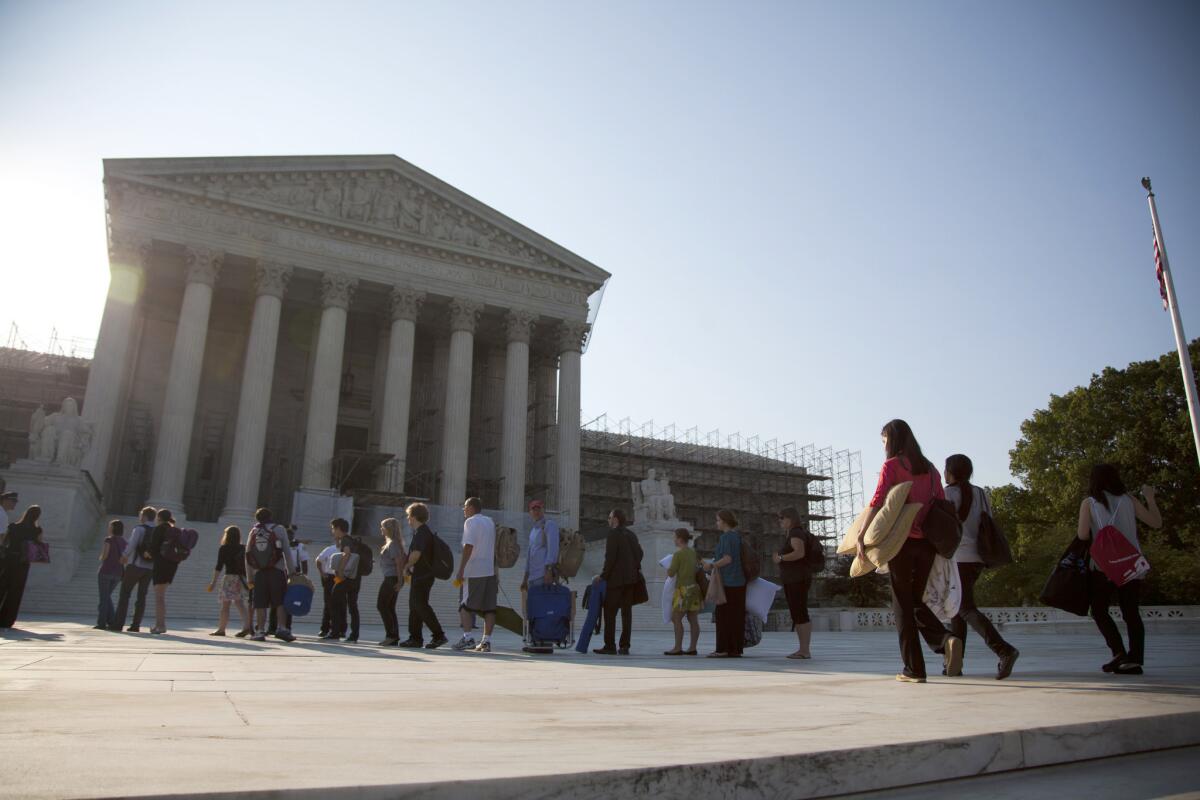Editorial: U.S. attorneys, take heed: Don’t make garden-variety crimes into federal cases

The Supreme Court unanimously agreed this week that federal prosecutors could not use an international chemical weapons treaty to bring a case against a Philadelphia-area woman who tried to poison a romantic rival. The decision was a deserved rebuke for U.S. attorneys, who have a penchant for discovering a federal issue in garden-variety crimes.
The ruling set aside the conviction of Carol Anne Bond, an immigrant from Barbados who was convicted of trying to poison her best friend after she learned that the woman had been impregnated by Bond’s husband. Bond stole a dangerous chemical from the laboratory where she worked and smeared it on the other woman’s doorknobs, car door and mailbox. Bond could have been prosecuted in Pennsylvania state court, but the federal government took the lead after postal inspectors caught her opening the other woman’s mailbox. She was charged with violating a law that had been passed by Congress to implement the Chemical Weapons Convention, which was ratified by the U.S. Senate in 1997.
In his pithy majority opinion, Chief Justice John G. Roberts Jr. wrote: “We are reluctant to ignore the ordinary meaning of ‘chemical weapon,’ when doing so would transform a statute passed to implement the international Convention on Chemical Weapons into one that also makes it a federal offense to poison goldfish.” Granted, Bond’s victim was a human being, not a fish, but the poisoning — which caused the victim only a minor burn on her thumb — was a federal case only in the creative imagination of prosecutors.
In one sense, Monday’s decision was an anticlimax. When the court accepted the case, some conservatives saw it as a vehicle for overruling a 1920 decision in which the court said: “If the treaty is valid, there can be no dispute about the validity” of a statute passed by Congress to execute the treaty. A reversal of that precedent was attractive to conservatives who are obsessed with the unlikely idea that the president and Congress might use the treaty power as a backdoor way to override the federalism provisions of the Constitution. For example, at oral argument in the case, Justice Antonin Scalia hypothesized that the U.S might ratify a treaty mandating same-sex marriage, which Congress would implement by passing a federal marriage statute — despite the fact that defining marriage is traditionally a state prerogative.
But in his majority opinion, Roberts found no reason to reconsider the 1920 decision, because he concluded that the prosecution was based on a clear misreading of the chemical weapons statute. There’s nothing wrong with the court deciding this or any case on the narrowest grounds possible. But if a future case poses the question directly, the court should rule that laws passed to implement treaties — like other laws — must accord with the Constitution.
More to Read
A cure for the common opinion
Get thought-provoking perspectives with our weekly newsletter.
You may occasionally receive promotional content from the Los Angeles Times.










